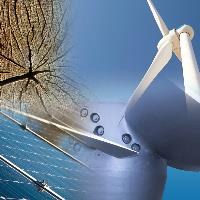(STRASBOURG) – EU Parliament and Council negotiators struck a deal last night for a share of energy from renewables of at least 32% of the EU’s gross final consumption in 2030, with an upwards revision clause by 2023.
The agreement also contains a planned phasing out of palm oil, as well as conditions to make it more attractive for households and groups of households to generate their own energy.
The legislation implements an “energy-efficiency first” principle – meaning the prioritising, in all energy planning, policy and investment decisions, of measures to make energy demand and supply more efficient.
A minimum share of at least 14% of fuel for transport purposes must come from renewable sources by 2030. In particular:
- first generation biofuel, based on food crops, must be capped at 2020 levels (with an extra 1%) and in no case exceed 7% of final consumption of road and rail transport;
- the share of advanced biofuels and biogas must be at least 1% in 2025 and at least 3,5% in 2030.
Palm oil is facing a ban, as food-crop biofuels like palm oil which have a high “indirect land use change” (ILUC, i.e. changing how land from non-crop cultivation, such as grasslands and forests, with a negative impact on CO2 emissions, is used), will be phased out through a certification process for low ILUC biofuels, which is to be set up.
New measures to support self-consumers are included. According the provisional deal, EU Member States must ensure that an EU consumer is entitled to become a renewable self-consumer, who may:
- generate renewable energy for their own consumption, store and sell excess production;
- install and operate electricity storage systems combined with installations generating renewable electricity for self-consumption, without liability for any double charge;
- not to be subject to any charge or fee on self-consumed energy until 2026, with some limited exceptions foreseen thereafter;
- receive remuneration for the self-generated renewable electricity they feed into the grid;
- join renewable energy communities to integrate self-consumption into the transition to cleaner energy.
The provisional deal provides a sub-target of an indicative 1,3% yearly increase of renewables in heating and cooling installations, calculated on a period of 5 years starting from 2021.
Member states must ensure that information on energy performance and the share of renewables in their district heating and cooling systems is provided to final consumers in an accessible manner. Customers of district heating or cooling systems that are not efficient are allowed to terminate their contracts in order to produce heating or cooling from renewable energy sources themselves.
The new European target of 32% was welcomed by the EU’s Climate Action Commissioner Miguel Arias Canete, who said the binding nature of the target would provide additional certainty to investors.
The target was however strongly criticised by the WWF, which said it was “inconsistent with the Paris Agreement’s goal to keep temperature rise to 1.5°C”. It added that the bioenergy rules “will allow ever more trees and crops to be burnt for energy, increasing greenhouse gas emissions even more than fossil fuels would do”.
The provisional deal still needs approval from both EU ministers and MEPs. Once this is achieved, the law will enter into force 20 days after the date of publication in the EU’s Official Journal. Member states will have to include the new elements of the Directive into national law by 30 June 2021.
Further information, European Parliament
EP legislative train on renewables
EP legislative train on energy efficiency
Procedure file – Promotion of the use of energy from renewable sources. Recast 2016/0382(COD)


